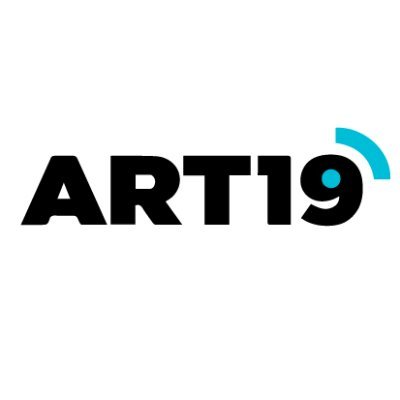The ART19 Content API conforms to the [JSON:API specification](http://jsonapi.org). API requests **MUST** use the HTTP Accept header: `Accept: application/vnd.api+json` API requests **MUST** be authenticated using the HTTP Authorization header: `Authorization: Token token="your-token", credential="your-credential"` ## General Notes Some query parameters use unencoded [ and ] characters simply for readability. Defaults, examples, and possible values are additionally rendered in double quotes for readability. In practice, query parameters should not have quotes around the values (e.g., `foo=bar` is valid, not `foo="bar"`), and both query parameter keys and values must be percent-encoded, per the requirements in [RFC 3986 § 3.4](https://tools.ietf.org/html/rfc3986#section-3.4). ## Rate Limiting In order to provide a fair distribution of available resources, all API calls are subject to rate limits. If you exceed the number of API calls per minute granted to your credential, a `429 Too Many Requests` error response will be returned. In that case, a `Retry-After` header MAY be included in the response, describing the number of seconds after which a request can be retried. If you run into a high number of 429 errors, please reach out to ART19 Support to adjust your rate limit. ### Example In the following example the request can be retried after waiting for 21 seconds: HTTP/1.1 429 Too Many Requests Content-Type: text/html Retry-After: 21 ## Pagination Requests to collection endpoints **SHOULD** provide pagination parameters. Some endpoints **REQUIRE** pagination parameters to be provided. Whenever pagination is provided, it **MUST** be valid. Failing to provide pagination when it is required or providing wrong or incomplete pagination always results in a `400 Bad Request` error response. The page numbering starts with `1` and the maximum page size (if not otherwise documented on an endpoint) is `100`. Pagination **MUST NOT** be specified if requesting a list of IDs (using an `ids[]` parameter). Providing invalid values for page number or page size, as well as providing only a page number or only a page size, is considered an error. Pagination is provided like this: `page[number]=1&page[size]=25` Responses conform to the [JSON:API specification's pagination section](https://jsonapi.org/format/#fetching-pagination) by including pagination links. Your requested page size will be carried into the pagination links. ## Sorting Requests to collection endpoints usually accept a `sort` parameter. Please refer to the [JSON:API Specification's sorting section](https://jsonapi.org/format/#fetching-sorting) for further details. ## Relationship Linking Currently, resources return all of their relationships, in no particular order, pursuant to how relationships should be returned [according to the JSON:API specification](https://jsonapi.org/format/#document-resource-object-relationships). Consumers of this API **MUST NOT** make assumptions about the order of these collections. Even though this data is not currently paginated, consumers **MUST** support paginating relationships per the JSON:API specification if this data is important for their application.
# Introduction The SearchLy API provides similarity searching based on song lyrics. # Operations The API allows for the `/similarity/by_song` operation, which allows clients to search the similarity for an existing song in the database. Also, the API has an additional `/similarity/by_content` endpoint which allows clients to search similarity given a free String input through a JSON request body. Additional `/song/search` operation is available for searching songs given a query String. # Endpoint The API endpoint for the SearchLy API v1 is as follows: ``` https://searchly.asuarez.dev/api/v1 ``` # Motivation This project was built in order to create an API for searching similarities based on song lyrics. There are a lot of songs in the industry and most of them are talking about the same topic. What I wanted to prove with SearchLy was to estimate how similar are two songs between them based on the meaning of their lyrics. SearchLy is using a database of 100k songs from AZLyrics, using [this scraper](https://github.com/AlbertSuarez/azlyrics-scraper), which is being updated periodically. Then, using word2vec and NMSLIB, it was possible to create an index where you can search similarities using the k-nearest neighbors (KNN) algorithm. > **Note**: I am currently using a micro-instance from DigitalOcean where the API is deployed, so you should expect a bad performance. However, if this API becomes popular I will deploy it in a bigger instance.
For a quick start guide click here
If you signed up for our API through RapidAPI you can make your test calls on their platform. Your RapidAPI credentials will not work on this page.
Do not use your RapidAPI keys on this page.
If you signed up with us and have an account, you must first authenticate with your API Keys and retrieve a Json Web Token (JWT) from the /getToken endpoint to access the other endpoints.
Your JWT is a required argument to all endpoints.
BC Laws is an electronic library providing free public access to the laws of British Columbia. BC Laws is hosted by the Queen's Printer of British Columbia and published in partnership with the Ministry of Justice and the Law Clerk of the Legislative Assembly.BC Laws contains a comprehensive collection of BC legislation and related materials. It is available on the internet in two forms:First: The library is available as a web site in which users can browse and search the laws of British Columbia.Second: The library is available as a portal to legislation in raw XML data format, accessible via the BC Laws API2. This direct access to raw data is intended to enable third parties to build or add their own custom applications based on the structure of the data and all the associated search functionality inherent in that structure. The BC Laws website itself is an example of one such application. Please note that you may experience issues when submitting requests to the delivery or test environment if using this [OpenAPI specification](https://github.com/bcgov/api-specs) in other API console viewers.
# The REST API of BeezUP system ## Overview The REST APIs provide programmatic access to read and write BeezUP data. Basically, with this API you will be able to do everything like you were with your browser on https://go.beezup.com ! The main features are: - Register and manage your account - Create and manage and share your stores with your friends/co-workers. - Import your product catalog and schedule the auto importation - Search the channels your want to use - Configure your channels for your catalogs to export your product information: - cost and general settings - category and columns mappings - your will be able to create and manage your custom column - put in place exlusion filters based on simple conditions on your product data - override product values - get product vision for a channel catalog scope - Analyze and optimize your performance of your catalogs on all yours channels with different type of reportings by day, channel, category and by product. - Automatize your optimisation by using rules! - And of course... Manage your orders harvested from all your marketplaces: - Synchronize your orders in an uniformized way - Get the available actions and update the order status - ...and more! ## Authentication credentials The public API with the base path **/v2/public** have been put in place to give you an entry point to our system for the user registration, login and lost password. The public API does not require any credentials. We give you the some public list of values and public channels for our public commercial web site [www.beezup.com](http://www.beezup.com). The user API with the base path **/v2/user** requires a token which is available on this page: https://go.beezup.com/Account/MyAccount ## Things to keep in mind ### API Rate Limits - The BeezUP REST API is limited to 100 calls/minute. ### Media type The default media type for requests and responses is application/json. Where noted, some operations support other content types. If no additional content type is mentioned for a specific operation, then the media type is application/json. ### Required content type The required and default encoding for the request and responses is UTF8. ### Required date time format All our date time are formatted in ISO 8601 format: 2014-06-24T16:25:00Z. ### Base URL The Base URL of the BeezUP API Order Management REST API conforms to the following template. https://api.beezup.com All URLs returned by the BeezUP API are relative to this base URL, and all requests to the REST API must use this base URL template. You can test our API on https://api-docs.beezup.com/swagger-ui\\ You can contact us on [gitter, #BeezUP/API](https://gitter.im/BeezUP/API)
This is an API for accessing information about bicycling related incidents. You can find the source code on GitHub.









